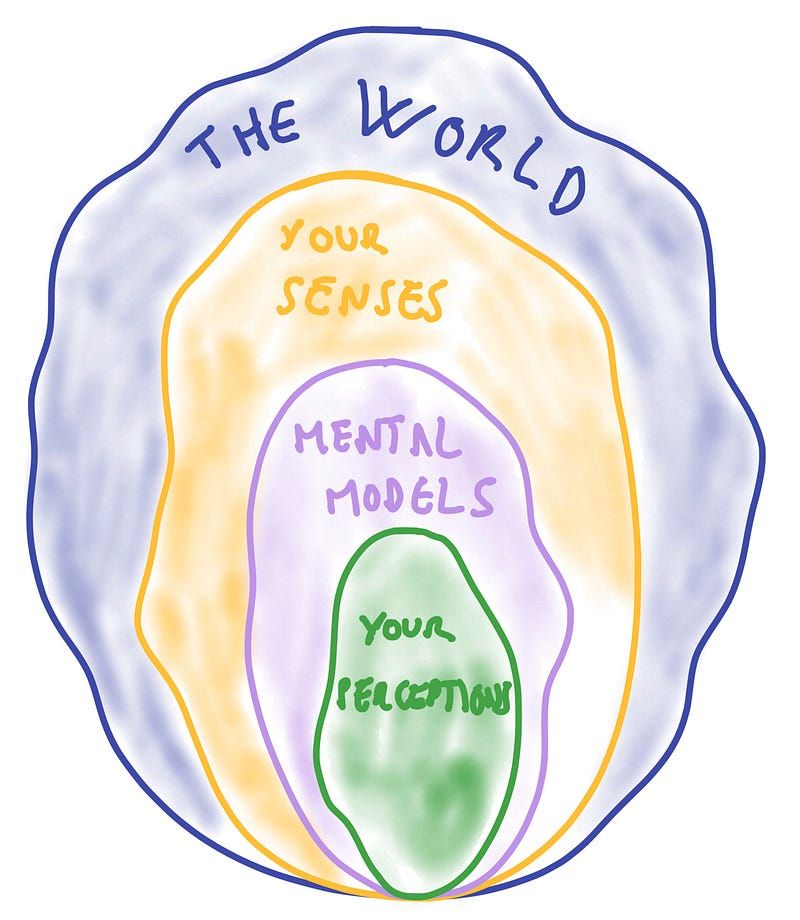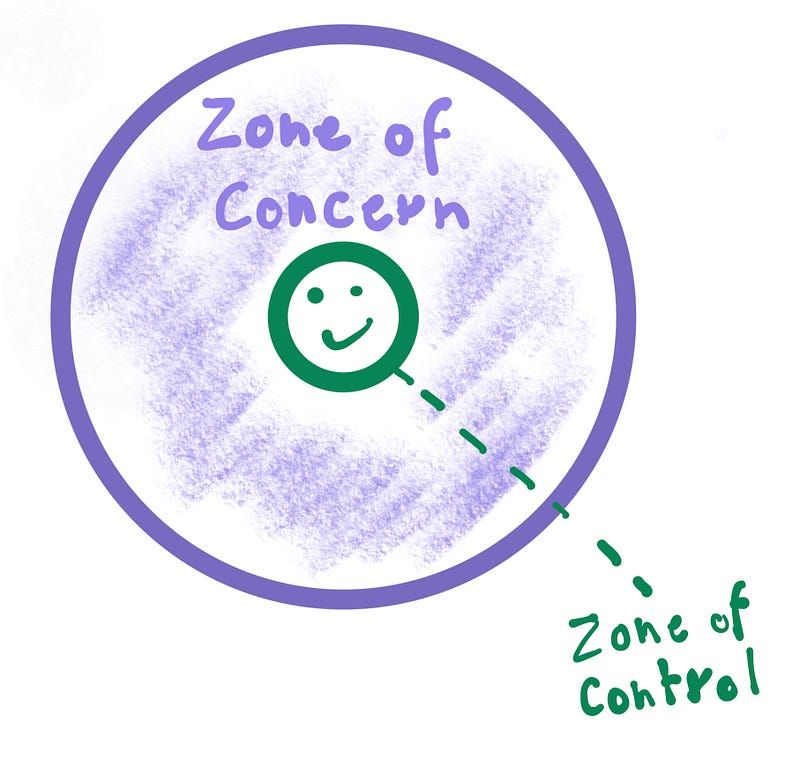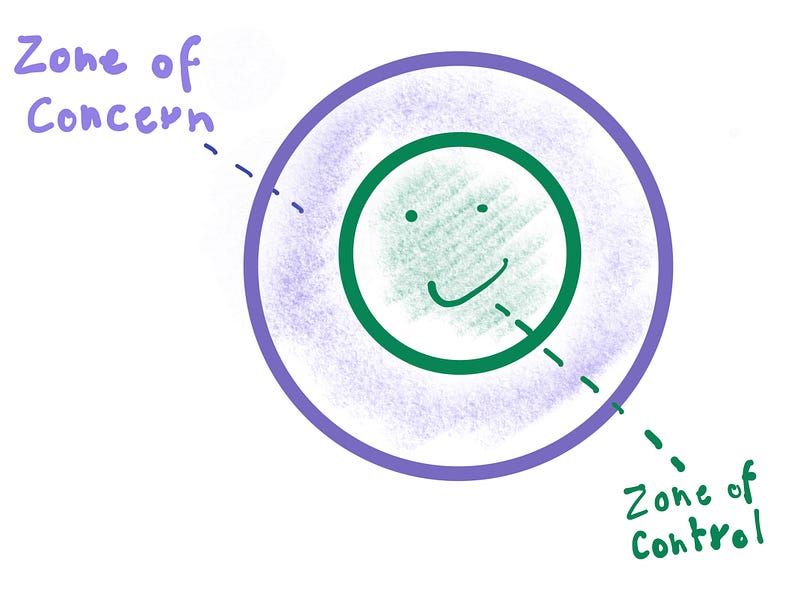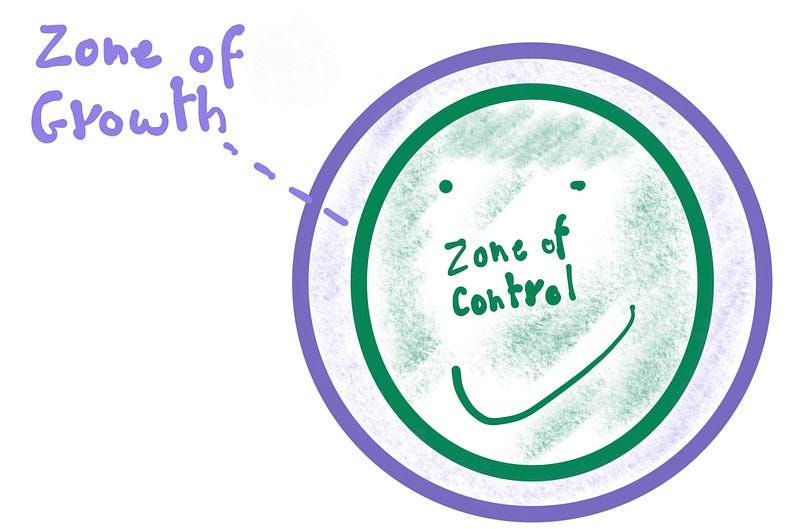How Reframing Negative Experiences Can Make You Happier
Emotional Intelligence#
When I came back from work, frustrated and demotivated by a recent reorg in my organization, my wife sensed my disarray. As usual, she listened actively to my rambles. Then she kindly suggested that I should go for a run. And I did.
I exercise daily and have competed in a few ultra-marathons, many marathons, some trail races, and a few Ironman triathlons. For me, running/biking/swimming is critical to a balanced life. Yes, physical activity is good on its own: it provides well-documented physical and mental health benefits.
But these benefits are not what makes me happier after a run. Not on this particular day, anyway.
During this run, I realized that I was, in fact, actively reframing the events that happened to me. With nothing to do but listen to my laboured breath, my mind was free to reimagine the events of the day.
Reframing is a way to revisit your memories (events, ideas, concepts, emotions, feelings) to frame these events in one or multiple alternative ways.
Quite often, reframing happens automatically. If you are in a negative mood (stressed, sad, disheartened, etc.), it will make the situation worse. You can even be carried away in a full drama, Hollywood-movie style. You are now the hero (or the villain!) of a blockbuster, where all the characters are alternate versions of yourself, your coworkers, and the world. It can play out in your mind with dialogue (sometimes with yourself!), music and all.
This day, however, I realized that I could regain some control of this process:
- By becoming aware that I was reframing the situation, and
- By applying a new mental model to the situation.
I purposely used a mental model of my choosing instead of letting my emotions create an uncontrolled wild drama scenario. I have experienced this technique and used it thousands of times.
This type of mental model and how to apply it to its own life experience is part of what is now emerging as the field of cognitive behavioural therapy (CBT). Broadly speaking, the goal of CBT is to change certain mental pathways that cause mental health issues or unhappiness in relation to yourself, others, and the future.

This active engagement of your left brain (the analytical brain) lowers the engagement of your right brain (feelings, visualization, etc.) and allows you to successfully stop the downward spiral.
The model I used is generic and can be applied to any situation. It is the zone of concern/zone of control mental model. This model is super simple. It states that you can only be happy if your zone of concern overlaps exactly your zone of control.
For example, consider guilt. Guilt is not an intrinsically bad feeling — but imagine feeling guilt on events and actions that you have no control over! It would create a personal hell.

Using the Zone of Concern/Zone of Control to Reframe Negative Feelings#
Here’s how to begin reframing your own experiences using the zone of concern/zone of control model.
Step1: Identify your negative emotions, especially guilt/sadness#
Even if it’s unpleasant, identify the negative feelings. Be on the lookout, especially, for guilt. You will often feel it in your gut and lower abdomen. Use this negative feeling as a starting point to identify all the feelings linked to the difficult situation you are working on.
At first, it could be helpful to use questions like these: what did you do (or not do) that created this situation? What makes you feel responsible for what happened? Do you feel responsible for your acts only? For your co-workers? for your manager?
You are labeling these people, situations, events, things, fears, feelings, and animals as part of your personal and unique area of concern. You care for these people/animals/objects/ideas/things! You now have made huge progress because you can now name what concerns you. This is not a fluffy and negative feeling anymore, but an actionable list of items.
Step 2: What is your control zone?#
Now that you have clarified the area of concern, it is time to consider your area of control. For this situation, what was under your control? What did you do (or not do) that contributed to the situation? Identify what was actually your responsibility in the chain of events that triggered the situation (or situations) that impacted you negatively.
This type of inquiry is generally easier because we are used to various root-cause analysis methods, and this is also part of the scientific method that tends to be taught broadly.
This phase relies on imagination, too (right brain now!) — you naturally consider an alternate version of yourself that took different actions to avoid the painful or difficult situation you are experiencing. By thinking about yourself and your past action, speech, and thoughts, you will be focusing on what you can control.
For instance, in the reorganization event, I replayed some leadership meetings and quickly came up with a list of things I could have said or done differently. Each of these actions was within my control zone.
Step3: Take a step back and look at the bigger picture#
Now that you have defined your zone of concern and your zone of control, it is time to work on how these two areas relate.
Remember, in this model, if you cannot match the two zones, you will experience unhappiness. On the contrary, if you can match them perfectly you will have a happy life.
This is like a mind game where you have to use all your analytics and creative skills to clearly define what is out of your control, what is in your control zone, and what you feel is your responsibility or your fault.
Because this chain of events is in the past, you can not alter it. You can only think about it differently. Now is the time to reframe. You can do this in one of two ways:
- Scale down your concern zone
- Scale up your control zone

How can you scale down your concern zone?#
Let’s start with the area of responsibility. Each human has a unique view of the world. For me, being a physicist, I like to start with the hyper-scale of the universe. We all are stardust. Our bodies are made of a few atoms, linked together via a super tenuous atomic and electromagnetic energy field. In a blip, these atoms could be dispersed, and we would stop being aware of this wonderful universe.
This does the trick all the time: how can I be responsible for all this? Whatever the situation (including terrible news like death and terminal illnesses), this type of reasoning scales down my zone of responsibility.
I do not recommend that you use this technique if it does not resonate with you. Look inside yourself for your own model and answers to the mystery of life and of the universe. Use your own words and experience. It will simply not work if you use somebody else’s thoughts and words: you have to make them your own and be deeply convinced by it. The goal is to be able to replay this movie, in your mind, on a snap.
This does not soften the sadness or empathy I feel for others or for my personal suffering. On the contrary, it makes it more defined and, as a consequence, more acute.
You may have to find other ways to scale down your zone of concern. For example, another way to do this would be by deciding that you can’t concern yourself with how other people feel about the situation.
How can you scale up your control zone?#
I have been meditating daily for more than 20 years now, and I am actively seeking freedom from the ego. Like lots of aspiring sages before me (stoicists, Buddhists, philosophers, priests, etc.), I am convinced that the ego is the enemy. In order to exist, the ego has to exercise control. Each time I want to exercise my power or my authority, this is because of my own insecurities and this uncatchable ego. With time, it is possible to associate any wish for control as a simple and common manifestation of your ego.
In fact, I find that the only thing I can actually control is my thoughts (feel free to challenge this!). For instance, I have some control over how I define what is important, just, terrible, funny, sad, or stressful. All these emotions and thoughts are simply appearing in my consciousness. They will, at some point, recede and disappear.
This is a spiritual matter that humanity has been exploring since the early days of our social evolution. Use your own view of the world, not mine. Use your view of what you control to go deeper and to frame your view of the situation.
Ask yourself what is actually in your control. Can you expand that circle by doing something differently, or by thinking about it differently?
Alternate between control and concern#
For tough issues, you can alternate between these two views of concern and control. Sometimes you have lots of concerns and you discover some root causes deep within your childhood or in past trauma. You will definitely need to do deeper work, perhaps with a therapist, to reframe those events in a way that allows for more happiness.
At each cycle, reframe your concerns based on the control you really have. As you better understand the control you really have, reframe the concerns. This is the reframing process that will make you happier.
One more thing…#
Reframing is not the end of the process. Your negative emotions and life experiences do not necessarily subside and magically disappear. This will not cure your anxiety and negative emotions that you will experience during your life. You will also need to take action as you step forward in your life.
This is especially true if you feel that you did not think, speak, or act truthfully or according to your own standards in the situation. It may also manifest strongly when learning about or supporting some friend or family member terminally ill. You may continue to bear a heavy burden.
Use the negative feelings to help you commit to changing into the better version of you that you want to be. Work exclusively on what you control and relinquish the illusion of control that caused all this suffering. Be 100% present with the people you love and admire. For more mundane matters, keep control of your emotions and temper during each interaction with fellow living beings.

Use this incredible experience that is life as a learning opportunity to change and grow as a human being.
Feedback is a gift 🙏: Please do not hesitate to share your thoughtsts
- via the contact page form
- via a LinkedIn connexion or message